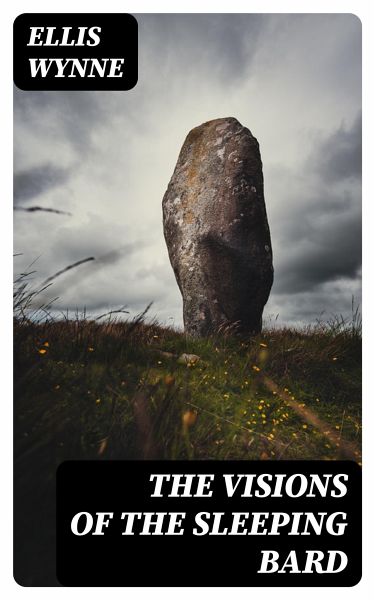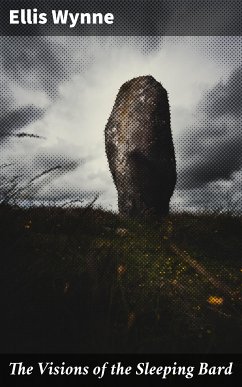
The Visions of the Sleeping Bard (eBook, ePUB)
Versandkostenfrei!
Sofort per Download lieferbar
0,49 €
inkl. MwSt.
Weitere Ausgaben:

PAYBACK Punkte
0 °P sammeln!
In "The Visions of the Sleeping Bard," Ellis Wynne weaves a tapestry of allegorical dreams and mystical experiences that reflect the rich tapestry of Welsh spiritual and literary tradition. Written in an era marked by the flowering of Renaissance thought, Wynne's prose is imbued with a poetic style that invites readers into a multi-layered examination of virtue, morality, and the influence of divine imagination. The book's surreal narrative structure, laden with visionary symbolism, engages with the cultural dialogues of its time, offering an introspective view of the human condition through t...
In "The Visions of the Sleeping Bard," Ellis Wynne weaves a tapestry of allegorical dreams and mystical experiences that reflect the rich tapestry of Welsh spiritual and literary tradition. Written in an era marked by the flowering of Renaissance thought, Wynne's prose is imbued with a poetic style that invites readers into a multi-layered examination of virtue, morality, and the influence of divine imagination. The book's surreal narrative structure, laden with visionary symbolism, engages with the cultural dialogues of its time, offering an introspective view of the human condition through the lens of a bard's introspections and otherworldly encounters. Ellis Wynne, a prominent figure in Welsh literature, emerged from a culturally vibrant background that informed his fascination with vision and morality. His life in the late 17th and early 18th centuries, coupled with the religious and philosophical currents of the time, deeply influenced his writing. Wynne's commitment to exploring the inner workings of the soul, particularly in contrast with the external worldly challenges, plays a crucial role in shaping the dreamlike quality of this work. Readers seeking a profound exploration of spiritual introspection will find "The Visions of the Sleeping Bard" both enlightening and thought-provoking. Its rich allegorical content and lyrical prose make it a significant contribution to the canon of Welsh literature, inviting modern readers to reflect on their own moral journeys and existential musings.
Dieser Download kann aus rechtlichen Gründen nur mit Rechnungsadresse in A, B, BG, CY, CZ, D, DK, EW, E, FIN, F, GR, H, IRL, I, LT, L, LR, M, NL, PL, P, R, S, SLO, SK ausgeliefert werden.











